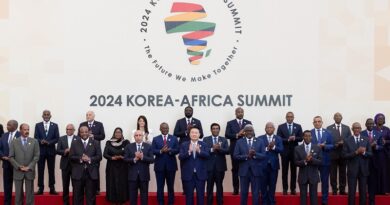Deep sea (deep sea) mineral mining… Discussion on drafting regulations

The issue of deep-sea mineral mining is causing intense debate in the international community, and as a result, the UN’s maritime regulatory body has begun discussions to draft related regulations.
The International Seabed Authority (ISA) is scheduled to hold its 29th General Assembly in Kingston, Jamaica from the 29th of this month to the 2nd of next month. This news was announced on the 15th through ISA’s website.
168 countries, including the European Union (EU), which are ISA member countries, plan to elect a new Secretary-General and discuss the UN’s 10-year plan for sustainable development.
The ISA General Assembly, which has received relatively little attention among UN meetings, is now receiving significant attention as concerns about deep-sea mineral mining grow.
Continuing from last year, ISA is making procedures related to commercial mining permits in international waters a major agenda item for its general meeting this year as well.
To this end, 36 ISA member countries, including Korea, are participating in detailed meetings to coordinate specific agendas from now until the 26th.
According to UN conventions, mining for commercial purposes is prohibited in areas of the deep seabed that are currently outside the jurisdiction of each country. ISA determines whether or not to approve the development of deep-sea mines for exploration purposes. According to the Associated Press, three related approvals have been granted so far.
However, due to the increasing demand for lithium, copper, and nickel, voices are growing that “regulations must be established to prevent and strictly manage random mining.”
ISA plans to decide how to apply the ‘two-year rule’ at this year’s meeting. This rule states that when an ISA member state that has secured deep-sea exploration rights declares its intention to mine, the review must be completed within two years.
Nauru is expected to submit plans for deep-sea mining operations on behalf of a Canadian company later this year, according to Reuters.
The AP reported that more than 20 countries, including Peru and Greece, are calling for a moratorium or moratorium on deep-sea mining.
Meanwhile, some countries, including China, are taking a stance supporting deep-sea mineral mining.
According to the AP, currently approved deep-sea mineral exploration is primarily taking place in waters between 4,000 and 6,000 meters deep in the Clarion-Clipperton waters of the Pacific Ocean. It is estimated that more than three times as much nickel as the world’s terrestrial reserves exist in this area.
Editor. Seyeong Hong







